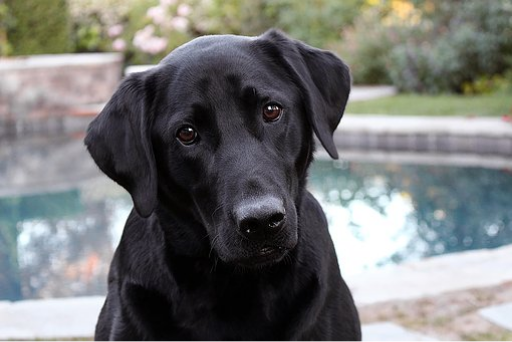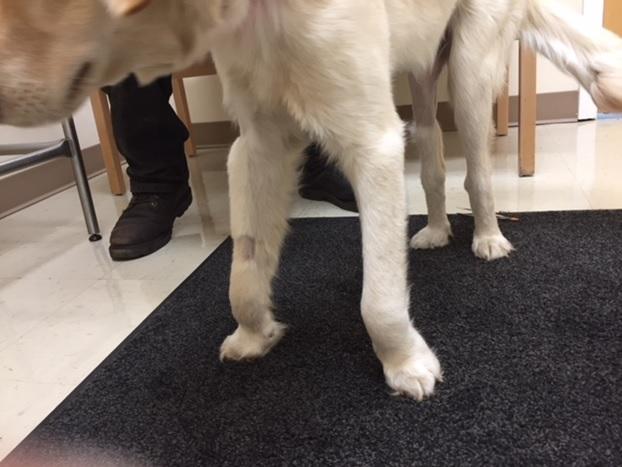
Click to view submission information
Congenital muscular dystrophies associated with independent mutations in the collagen VI gene has been identified in families of American Staffordshire Terrier and Labrador Retriever dogs. At 4 months of age, clinical signs including angular limb deformities and carpal and tarsal contractures were present. Serum creatine kinase activity was persistently elevated. Histopathology of muscle biopsies showed a dystrophic phenotype and immunohistochemical stainings of fibroblasts and muscle showed an absence of staining for collagen VI.
Research carried out at the University of Minnesota, the National Institutes of Health, and the University of California San Diego – Comparative Neuromuscular Laboratory identified pathogenic mutations in the collagen VI gene with an autosomal recessive manner of inheritance.
We are now offering genetic tests which allows owners to determine their dog’s status for these mutations in order to diagnose affected dogs and to guide future breeding decisions.
For purebred dogs, we recommend testing for the breed-specific collagen VI mutation.

Submitting a sample
Step 1 - Select instructions for your sample type
- Blood sample protocol (pdf)
- Cheek swab protocol (pdf)
- Dew claw & tail docking protocol (pdf)
- Semen sample protocol (pdf)
Step 2 - Complete your submission form(s)
Step 3 - Fees & Payment
Any test
$65 each
Need cheek swabs?
Cheek swabs are not included in the purchase price. Links to several purchasing options are available within the cheek swab protocol (pdf).
Step 4 - Ship your sample(s)
Scientific references
Pathogenic variants in COL6A3 cause Ullrich-like congenital muscular dystrophy in young Labrador Retriever dogs
Bolduc V, Minor KM, et al. (2020)
Neuromuscular Disorders, doi: 10.1016/j.nmd.2020.03.005
Novel COL6A3 frameshift variant in American Staffordshire Terrier dogs with Ullrich-like congenital muscular dystrophy
Leanne Jankelunas, Vishal D. Murthy, Annie V. Chen, Katie M. Minor, Steven G. Friedenberg, Jonah N. Cullen, Ling T. Guo, James R. Mickelson, G. Diane Shelton
J Vet Intern Med.2023;1–6 doi: 10.1111/jvim.16862